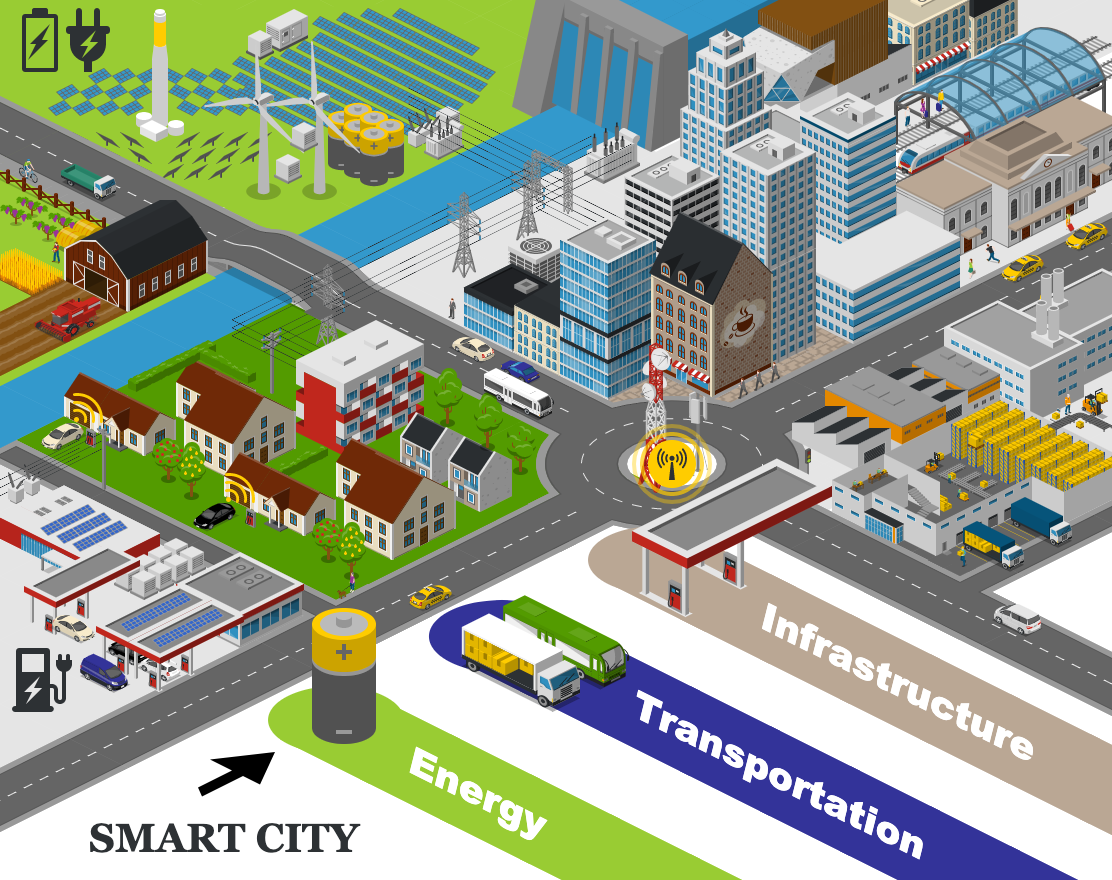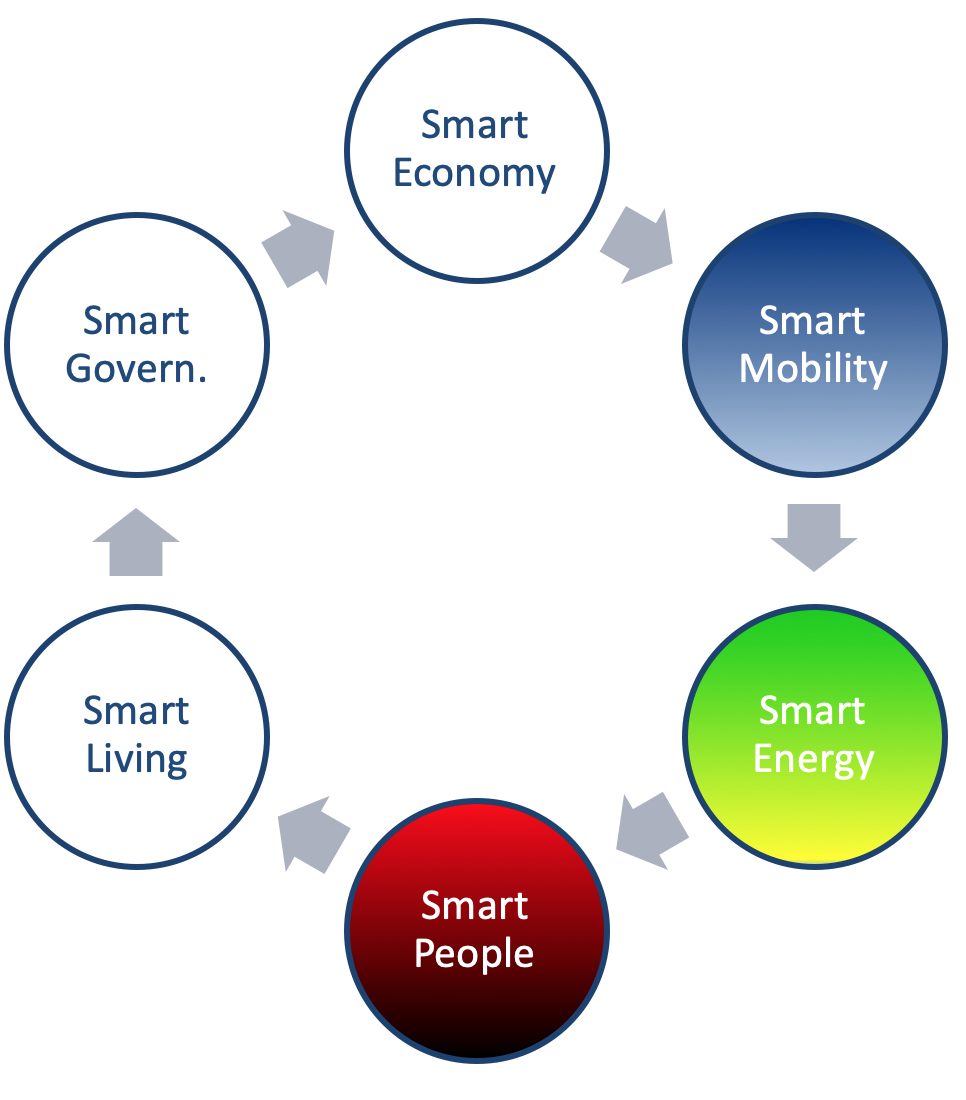Research Interests

As human civilization becomes more and more urban-centric, the “Smart Cities” is drawing attention from all over the world. But what exactly is the “smart cities”? It can be characterized by the following 6 main components:

- Smart Economy: the city produces with high productivity based on its infrastructure
- Smart Mobility: the city provides intelligent transportation network for its citizens
- Smart Energy: the city manages efficiently energy resources at hand.
- Smart People: The citizens are well-educated, and make contributions to the society.
- Smart Living: the city improves the quality of people’s lives.
- Smart Governance: the citizens participate actively in every decision making process of the city.
The objective of the “Smart Cities” is to enrich the citizen’s lives by optimally using the available resources and minimizing the operational costs through the Internet of Things (IoT), Artificial Intelligence (AI), Big Data and Information and Communication Technology (ICT) infrastructure. In this context, my research focuses on developing advanced Energy Systems and Transportation Systems in Smart Cities. My journey starts from understanding physical phenomenon via mathematical modeling, i.e., dynamical systems. On top of that, the cutting edge skills of Control Theory and Machine Learning are leveraged to operate the system in efficient ways. My research directions include the following milestones:
- Design a mathematical modeling for dynamical systems represented by PDEs, ODEs, and DAEs.
- Control / Estimate the dynamical systems.
- Leverage Data Science to improve the system capability.
- Distinguish the benefits of machine learning and control theory.
- Transform academic knowledges to real world applications.
Energy Management System

The integration of batteries electrifies the urban mobility, which achieves zero emission pollutant. As the batteries are operated in the limit, it is necessary to understand the mechanism and manage them properly. The challenge is that the battery is complex system and, have a lack of measurements to analyze the internal process. The objective of BMS research is to design monitoring and control the battery to improve the capacity, safety, and charging time for electrified transportation.
Featured publications:
Optimal Experimental Design for Li-ion Battery Parameter Identification
Faster and safer charge of Li-ion batteries: Feedback control makes the difference
Data Science

The increasing number of measuring instruments, fueled by Internet of Things (IoT), creates a substantial amount of information in the urban system. The integration of physical processes with networked computing, so-called Cyber-physical system (CPS), can provide enormous benefits to society. The proper usage of data analytics provides the insight of building data-driven system involving prediction, classification, and modeling. The challenge is that the data is often time-series data with unknown dynamics existed. The objective of data-science research is to design a data-driven model and accurate prediction model to improve the utility, safety, and interpretability for urban system.
